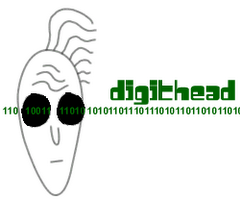The 2014 Galaxy Community Conference (GCC2014) wrapped up yesterday at Johns Hopkins University in Baltimore. The best part for me was the pre-conference hackathon.
If you're not familiar with Galaxy, it's a framework for wrapping command line bioinformatics tools in a web UI. On top of that, Galaxy adds lots of sophistication around job scheduling, configurable to run its job on SGE, SLURM, and other queuing systems and to run on virtual clusters with Cloudman. Galaxy users can design reproducible workflows and manage tool versioning and dependencies through the Toolshed.
The project has attracted a vibrant community supported by an active Q&A site and an IRC channel. Vendors offer Galaxy appliances, cloud deployments and consulting.
Hackathon
For the hackathon, 40 developers gathered in James Taylor's new computing lab in one of the red brick buildings interspersed with lawns and groves of trees that make up the Hopkins campus. This was a great setting for an accelerated ramp-up on the Galaxy codebase. Out of 18 proposed projects, 9 got far enough to be called finished. I learned how to write tool wrappers and how to access the Galaxy API.

Photo credit - someone on the Galaxy team
Galaxy + Synapse
Specifically, I was there to put together some integration between Synapse and Galaxy, bulding on what Kyle Ellrott had already started. Reproducibile analysis, provenance and annotation are core concerns of both projects, so it seems like a good fit. After data exchange, which Kyle got working, exchanging provenance and metadata sound like logical next steps.
Galaxy histories should be able to refer to Synapse entities and receive annotations along with data objects.
Serializing Galaxy histories, workflows etc. out to Synapse might allow a usage model where a cloud instances of Galaxy can be spun up and shut down on demand, with all the important details preserved in Synapse in between times.
Portable provenance might be a longer term goal. It would be neat to be able to thread provenance through some arbitrary combination of data sources and analysis platforms. All of these provenance-aware platforms - Figshare, Dryad, Synapse, Arvados, Galaxy, etc - ought to be able to share provenance between themselves.
Next year
The whole event was well put together in general. Next year's Galaxy Community Conference is scheduled for 6-8 July 2015 in Norwich, England.
- Anton Nekrutenko group at Penn State
- James Taylor's group which recently moved from Emory to Johns Hopkins








 R Bloggers
R Bloggers
No comments:
Post a Comment